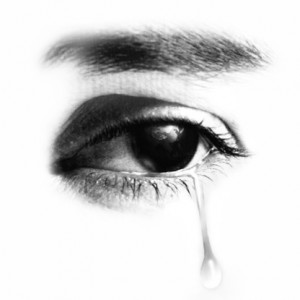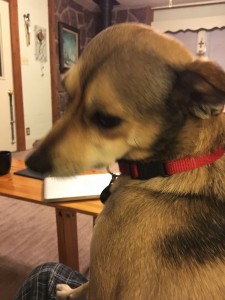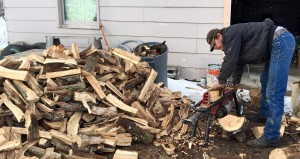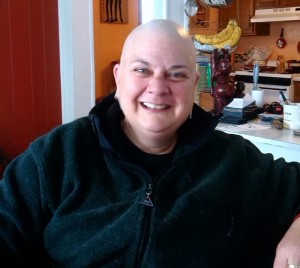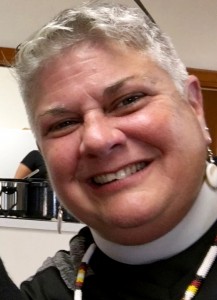Sermon preached at Trinity Episcopal Church, Mission, on the Rosebud Indian Reservation, South Dakota.
4 Epiphany C: God’s love is for everybody …
3 Epiphany C: Pay it forward, forever and ever …
I cry a lot these days …
“When you first got here, did you cry a lot?”
A friend asked me that as I prepared to lead yet another wake service the other night, the fourth wake service of five this week, for the three funerals I did just this week.
She wondered if all the funerals we did in the first months after my arrival on the Rosebud Reservation caused me to crumple with grief.
“Wasn’t that overwhelming?” she asked.
I told her: It’s actually harder now, because I know so many of the people now. When I first arrived, I was burying strangers, people whose stories I did not know.
Now?
It seems I know most of the people I bury. If I don’t know them personally, I know their families.
I cry for those whom I bury … so many of them, young and old, often in bunches so close together that it seems that all I do is wakes and funerals, and wakes and funerals, and more wakes, and more funerals.
I cry for all the violence in the world: For the people of Yemen. And Gaza. And South Sudan. And Mexico. And Cameroon. And Haiti. And just about every place around the world where people settle arguments and confront fear with war.
I cry for all the violence in this country. Right now, my tears are for the faithful Jews of the Tree of Life Synagogue in Pittsburgh. For Vickie Lee Jones and Maurice Stallard, two innocent African Americans murdered in a Kentucky grocery store simply because they were African American. For police officers gunned down while doing their jobs. For women killed by domestic partners who had no business having access to guns. For our soldiers and Marines killed in combat.
I cry for our children, especially this latest generation which one 18-year-old has labeled the “Massacre Generation,” because massacres – massacres! – make up the majority of their memories.https://www.washingtonpost.com/outlook/2018/11/01/i-am-i-belong-massacre-generation/?utm_term=.d09d6608d0a0
I cry for the migrants who so desperately want a better, safer life – and whose journeys end, instead, in death in the desert. Or separated from their children. Or thrown in jail. Or deported without their children.
The tears suddenly fill my eyes, and I have to take a deep breath, and – if I’m preaching – sometimes pinch my fingers together to make a focal point for my body.
I am not depressed.
This is not a medical issue that can be treated with drugs.
But I do have a big heart, a heart that sometimes is too filled with love, too filled with hope, too filled with a desire for goodness and grace and mercy and justice and simple kindness.
And then the tears come, unbidden.
I believe in the inherent goodness of humanity, that we, who are all created in the image of God, really are good people.
I believe in that goodness because I have seen it, because I see it every single day, when people reach out to help each other, when a friend unbidden reaches out to me and asks, “how are you doing today,” when another friend texts, “You are loved.”
I think that because I know there is goodness in the world, when I see the bad stuff – the shootings, the racism, the hatred, the vitriol, the fear-mongering, the blatant lies, the attempts to make some people lesser than others – my heart cracks and the tears come.
I don’t mind the tears.
They remind me that I am human.
They remind me of God’s love.
They push me to do better, to be better.
They remind me that I care.
They remind me to never stopcaring.
So, yes, I cry a lot these days.
And then I wipe away the tears.
I remember the quotation from the Talmud, tattooed around my left arm as a prayer: Do not be overwhelmed by the enormity of the world’s griefs. Do justice now. Love kindness now. Walk humbly with your God now. You are not obligated to complete the work, but you are not free to abandon it.
And with the tears wiped, I get back to work, to God’s work, trying as best as I am able to fulfill what Verna Dozier, quoting Howard Thurmans, called the “dream of God”: “A friendly world of friendly folk, beneath a friendly sky.”
This is God in action
It is a cold Sunday morning here on the Rosebud, this Second Sunday after the Epiphany. At 6 a.m., the temperature with the wind chill – and we know wind chill here on the Great Plains – was nearly 30 below zero.
It is so cold that we canceled most of our church services on the Western side of the Rosebud Episcopal Mission. I don’t want our people out in weather that literally can kill you in less than 30 minutes.
But even when we don’t have church services, God is still at work in our lives. 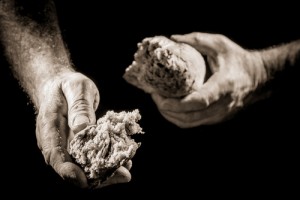
A few minutes ago, a car pulled into my driveway. If we had had church, I wouldn’t be here at this time, and most of the people know that. But since my car was still parked, still covered in a light dusting of snow, whoever was in that visiting vehicle knew that I most likely was home.
After a few moments of hesitation, the driver got out. She didn’t have a hat. Or gloves. She was holding her way-too-light winter jacket closed with one hand. “You need to zip that up,” I said. “Oh, it doesn’t zip,” she said. “It’s broken.”
I know this woman. She is one of our parishioners here on the Rosebud, a woman who has struggled to hold things together, a woman with children and grandchildren, one of whom has a several physical handicap. This woman needs help, but she hesitates to ask. She doesn’t want to be a burden. Whenever I am with her, I always let her take the lead, because I know how hard it is for her to ask for anything.
“Didn’t we have church this morning?” she asked. “No,” I told her. “We canceled church because of the cold.”
“Um … does the church have any help?” she asked, hesitating every other word.
It turns out they have no food to eat in the house. I’m not surprised. It is mid-month, and it is very cold, and many people do not have enough money for both heat and food.
So I take her into my kitchen, which she does not want to enter because she might track snow onto my linoleum floor. “I don’t care about the floor,” I told her. “It can be washed. Come inside. It’s too cold to stand out there.”
Finally, she enters. I have to encourage her to take more than one step into the kitchen.
“Do you have any food, like bread?” she asks, her head down. I know that she doesn’t want to do this, but she has children. They must eat.
“I don’t have any bread,” I tell her, “because I generally don’t eat bread. But here … I have other food for you.”
I take out four cans of soup, 10 cans of tuna, pasta, couscous, cans of pears and apricots. I give her half of my grapes, most of my bananas, most of my oranges. “Here,” I say, “these have to be eaten. Help me with this.” I see two bags of popcorn someone had given me, as well as some crackers. (“Oh,” she says, “we have crackers.” “Take them,” I say. “You might as well have some more.”) The 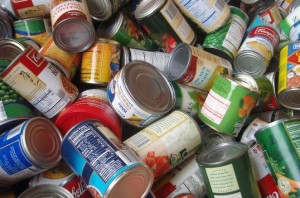 large canister of oatmeal has been opened, but I give it to her anyway. It’s mostly full, and the kids will like it. I scour the cabinets for more food her family will eat. “Have you tried quinoa?” I ask. “No. What is it?” she replies. “It’s one of those healthy grains. Easy to make. Just follow the instructions. I like it,” I tell her. In the bags it goes.
large canister of oatmeal has been opened, but I give it to her anyway. It’s mostly full, and the kids will like it. I scour the cabinets for more food her family will eat. “Have you tried quinoa?” I ask. “No. What is it?” she replies. “It’s one of those healthy grains. Easy to make. Just follow the instructions. I like it,” I tell her. In the bags it goes.
Much of the food I give is food I have purchased for just this occasion. People come to my door, sometimes one or two a day, looking for help. I try to keep food on hand that I know they will eat. Cans of fruit, vegetables, soups. Bags of pasta. Boxes of couscous and quinoa. When I have fruit on hand, I always share it with them. I ask them to help me eat it before it goes bad. Our people don’t get enough fruit; it’s frequently too expensive. I try to make sure I always have some on hand for my visitors.
But I have to be careful not to give too much, not to give all that I have. This is a shared meal, as it were, which means that I have to have some food left for myself. The goal is to make sure that everyone has enough. Just that: Enough.
Through it all, my two dogs, Yassa and Bella, are standing there to greet her. She hesitatingly reaches out for them. My dogs are trained to be church dogs, meaning that they are polite and don’t jump, that they greet each person with love. “They’re so soft,” she says, over and over again. “I can’t believe how soft their fur is.” I tell her it is the dog food, keeps them healthy, the same dog food the vet uses. She marvels again at their softness, and their gentleness. “They’re so nice,” she says, stroking Yassa’s fur. (Meanwhile, Bella, who emerged from her blankets, stands shivering. My visitor is concerned: “She’s cold!” I tell her than Bella lives under her blankets in the winter, and that she always shivers when around guests. Bella is a little … well, manipulative that way. She wants every visitor to pick her up and cuddle her. In return, she loves to give kisses. It’s just Bella’s way …) I do not tell my visitor how much the dog food costs; I am too embarrassed to admit I have that kind of money to feed dogs …
As she turns to take the food out to the waiting car, where her daughter and granddaughter are waiting, I ask if they can use some coats. My family and I picked up a lot of them for a giveaway that I am having problems getting organized (it’s complicated, but it will happen).
We go to the front porch and find a new jacket for the woman, one that is warm and will zip up. Then we find one for her smallest child. Then we dig through and get hats and scarves and gloves. “Take what you need,” I say. “It’s for you.” She is hesitant, again. She does not want to take too much, but I know there is a need. “Really,” I say, encouraging her. “Don’t you want some of these scarves? They are hand-made.”
Finally, my visitor takes some of the softest scarves she can find. “If it’s all right …” “Take as many as you need,” I say. “Wouldn’t you like another one? They’re handmade for the oyate (the Lakota people).” “Just one more,” she says. “They’re so soft …”
I peek out the window and see the children in the car already consuming the fruit, smiling as they eat it. Already, this has been a good visit.
Again, we go to the door. I know that she feels she has taken too much.
“Do you have a wood stove?” I ask. “I have wood if you need it.”
Once more, hesitation.
Finally, I get her to agree to take what I have stored in my “secret stash.” (We cut wood for the people here on the Rosebud in our Firewood for the Elders program. While I was away after Christmas, nearly all of it was taken by a few folks who have lost their way when it comes to taking care of all the oyate. But we are cutting more wood, with the help of the community. To learn more about that, see our new website, rosebudepiscopalmission.org, and look under “Our Blog.”)
She and her daughter take the wood that is left, enough to keep them warm at least for another day.
Our new Presiding Bishop, The Most Rev. Michael Curry, has proclaimed that we are part of the Jesus Movement. That we are the ones who are called to live out the Gospel of love and inclusion every single day of our lives. That we are the ones who can change the world by our words and deeds.
No, we didn’t have church this morning on the Rosebud West. It was too cold.
Instead, we – a visitor and myself, as well as my two dogs – had church in my kitchen. Where we broke bread together by sharing our food. And on my front porch. Where we shared from the abundance of cold-weather gear.
This is the Jesus Movement. This is God in action.
Our collect for today, the Second Sunday after the Epiphany:
Almighty God, whose Son our Savior Jesus Christ is the light of the world: Grant that your people, illumined by your Word and Sacraments, may shine with the radiance of Christ’s glory, that he may be known, worshiped, and obeyed to the ends of the earth; through Jesus Christ our Lord, who with you and the Holy Spirit lives and reigns, one God, now and for ever. Amen.
A small act of kindness … and a new look
So … the other day, a friend of mine sent an update on her battle with cancer.
My friend, Joell, begins chemo next week, and has been told that she will lose her hair as a result of the chemo drugs.
During my prayer time Friday (while I was working out), I realized God was telling me that the most pastoral thing I could do for my friend, whom I met on my very first day in seminary, was to shave my head bald in solidarity with her. Which means that I will be bald for the next several weeks and months. However long Joell goes without hair, I go without hair.
I am not ill. I am simply trying to boost the spirit of a friend who is young (OK, she’s only seven years younger than me, but I still think of her as a 20-something…), vivacious and a tremendous gift to the Episcopal Church and to all of God’s beloved children. Joell is the one who taught me how to preach a children’s sermon. She taught me how to “throw” incense. We had classes together, stressed through our ordination examinations together, commiserated over job woes, celebrated ministry highs, and share stoles I had made from African cloth.
Now she is ill. And I cannot be there for her. She lives 1,500 miles – half a country away – from me. I can’t be there to hold her when she’s ill, or when she needs someone to make a run for some odd food urge, or just to give her a hug. She has lots of other people to do all that for her, but I won’t be there.
As I prayed for Joell yesterday, I knew … I simply knew … that I was supposed to shave my hair off. And to keep my head shaved, every single day, until her hair comes back. No matter how I tried to get around this idea, it kept coming back. As I walked on my treadmill. As I swung my kettle bells. As I did my planks and sit-ups and leg lifts. No matter what I was doing, God’s little voice was right there: Do this. Today.
So I texted my hair stylist (and trust me, she is a stylist; keeping my hair short as I have for the last 11.5 years means Sherri has to work hard to keep it looking good!), and asked for an emergency appointment. She finally found a spot for me, a free 5 minutes later in the day.
When I walked in, she was ready … and not ready. Sherri has done this for other people who want to support their friends with cancer. But every time, she gets nervous. “Are you sure?” “Yes, I am. Go for it.”
10 minutes later, I was bald, or nearly so. Sherri took my hair down as far as possible with her clippers. I still had to shave.
But … it was done.
I took a slew of photos, posted them on Facebook, and texted Joell to make sure she saw it. I told her:
Joell, this is for you.
As long as you’re bald, I’m bald.
Because bald is beautiful.
Bald is brave.
So get your beautiful brave on and kick cancer’s butt!
#GetYourBeautifulBraveOn
And then … well, then, it got kind of crazy. Before I could even check to make sure the photos had posted correctly, there were five likes. And then comments. And then more likes. And more comments. Within four hours, there were 160 likes. Within 24 hours, there were 260 likes. And a slew more comments, all in support.
I’m not the first person to shave my head in support of a friend with cancer. And I won’t be the last. But in these days of such incredible nastiness and division, of snark and cynicism, I believe that a small act of kindness – and remember, it’s just hair and it will grow back! – touches people’s hearts. To appropriate (I hope faithfully) John Wesley’s quote, people felt their hearts strangely warmed.
That’s how I know that this head-shaving adventure is really of God.
Then again, aren’t all acts of kindness, large and small?
I do ask you to pray for my friend Joell. Hold her and anyone who has cancer, or any serious, life-changing, gut-wrenching illness, in prayer. Then take a moment to do something – large or small – for one of those folks, or for all of them. Remember that our lives are intertwined … and that every act of kindness counts.





